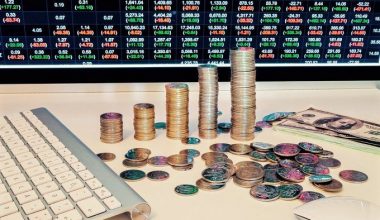Money market funds are a type of mutual fund that invests in cash and short-term debt securities that have low risks. If you’re looking for a safe, short-term, and liquid place to keep your money, a money market fund is a great choice. These mutual funds are designed to have very little risk, high liquidity, and low costs.
Money Market Funds
Money market funds are open-ended fixed-income mutual funds that invest in liquid, low-risk short-term debt securities like Treasury bills, municipal bonds, and short-term corporate and bank debt.
Brokerages, investment companies, and financial services organizations all offer money market funds as mutual funds. They make short-term investments in high-quality securities using a pool of money from many different investors. Although they are technically investments, they function more like on-demand cash accounts because the money is so easy to get.
The tax treatment of mutual fund dividends will depend on your investing strategy. A fund manager chooses money market investments, taking into account the type of money market fund. Unlike money market accounts, which are insured by the Federal Deposit Insurance Corporation (FDIC), money market funds are not. The Securities and Exchange Commission (SEC) closely regulates them.
Generally speaking, money market funds invest in securities like certificates of deposit, commercial paper, U.S. Treasury bonds, repurchase agreements, etc.
A money market fund is a type of mutual fund that invests in liquid, short-term securities. Cash, cash equivalents, and debt-based securities with a short maturity that have a high credit rating are some examples of these instruments. U.S. Treasury bonds are another example. Money market funds offer very little risk to investors while still providing high liquidity. Money market mutual funds and money market funds both refer to the same thing.
Types of Money Market Funds
The class of invested assets, the maturity period, and other characteristics are used to categorize money market funds into different types.
#1. Prime Money Fund
Corporate paper, bankers’ acceptances, short-term corporate notes, and bank debt securities are all investments that prime money market funds make. Repurchase and reverse repurchase agreements also fall under this category. They consist of money invested in government-sponsored enterprises (GSEs), U.S. government agencies, and short-term bank securities like banker’s acceptances and certificates of deposit, as well as short-term corporate debt instruments like commercial paper, corporate notes, and short-term bank securities.
#2. Government Money Fund
A government money fund must hold at least 99.5% of its assets in cash, government securities, and repurchase agreements with full cash or government security collateral. Treasury bills with a short maturity date are purchased by government money market funds. The majority of these are notes and bills, though there may also be bonds and repurchase agreements backed by Treasury bills and notes. The money is very safe because the government-backed paper is “risk-free.”
#3. Municipal Money Fund
Municipal bonds pay interest that is not subject to federal income tax. State municipal securities are among the securities with tax protection issued by other organizations, in which money funds also invest.
Best Money Market Funds
#1. Fidelity Money Market Fund (SPRXX)
Although it is not the most affordable choice, the Fidelity Money Market Fund has the lowest minimum investment of the funds in our listing. The fund’s holdings consist of securities issued by financial services companies, money market securities from domestic and foreign markets, as well as American government securities and repurchase agreements. With an expense ratio of 0.42% and an interest yield of 4.14%, it has no minimum requirement.
#2. Vanguard Federal Money Market Fund (VMFXX)
The Vanguard Federal Money Market Fund, which puts at least 99.5% of its assets into cash, U.S. government securities, or repurchase agreements with only cash or government securities as collateral, is a reasonably accessible money market option. With an expense ratio of 0.11% and a yield of 4.22%, it has a $3,000 minimum requirement.
#3. DWS U.S. Treasury Money Fund (IUSXX)
The DWS U.S. Treasury Money Fund’s stated goal is to offer the maximum current income consistent with the stability of capital and is easily accessible to the average investor. As a government money market fund, it is required that 99.5% of all assets be in cash and short-term US Treasury bonds at the time of investment. With an expense ratio of 0.31% and an interest rate of 3.93%, the minimum is $2,500 or $1,000 in an IRA.
#4. Goldman Sachs Treasury Solutions Fund (FVAXX)
The Goldman Sachs Treasury Solutions Fund only makes investments in obligations issued or guaranteed by the United States Treasury, including securities and repurchase agreements with the Federal Reserve Bank of New York that are secured by Treasury securities. It requires a $1,000 minimum investment and has a 0.45% expense ratio to generate an estimated 3.92% interest.
#5. Invesco Government Money Market Fund (INAXX)
With a $1,000 minimum investment requirement or $500 in an IRA, this is among the best mutual funds available in the money market. This investment fund should yield 4.06% and have a 0.35% expense ratio.
The Invesco Government Money Market Fund maintains at least 99.5% of its total assets in cash, government securities, and repurchase agreements with cash or securities as collateral. Additionally, government securities account for at least 80% of net assets.
#6. Northern Trust U.S. Government Money Market Fund (NOGXX)
The minimum investment amount for this money market fund is $2,500, or $500 if you’re investing through an IRA. You can anticipate a yield of 3.78%, and an expense ratio of 0.35%. The Northern Trust U.S. Government Money Market Fund invests in U.S. government and agency securities, as well as repurchase agreements, to generate income at a low-risk level.
#7. BlackRock Summit Cash Reserves Fund (MSAXX)
At least 99.5 percent of the assets in BlackRock’s Summit Cash Reserves Fund are cash, Treasury securities, and other obligations that are issued or guaranteed by the United States government. With some exceptions, the fund only purchases securities with maturities of 397 days or less and strives to keep its dollar-weighted average maturity at or below 60 days. The minimum investment amount is $1,000, and the yield is 3.73 percent. The expense ratio is 0.42%.
#8. Gabelli U.S. Treasury Money Market Fund (GABXX)
The Gabelli U.S. Treasury Money Market Fund has a lower expense ratio than many other funds on this list, but it has a higher minimum investment requirement of $3,000 or $1,000 in an IRA. Its expense ratio is 0.08 percent. The fund places at least 99.5% of its total assets—cash and U.S. Treasurys—in cash. The yield for this market fund is 4.11%. One of the top money funds available today is the Gabelli US Treasury Money Market Fund.
Benefits of Money Market Funds
#1. Liquidity
It typically takes fewer than two business days to redeem a money market fund, and trading transactions in brokerage accounts settle quickly.
#2. Managing Risks
Since they invest in low-risk, high-liquidity cash equivalent securities, they serve as a tool for risk management.
#3. Short-term Nature
They have low-interest rates, minimal credit risk, and limited liquidity due to their short-term nature.
#4. High Security
Money market funds make investments in securities with high credit quality and low risk, providing high security.
#5. Tax Exemption
Money market funds invest in municipal securities because they often enjoy federal and state income tax exemptions, which makes their income tax-efficient.
Money Market Fund Disadvantages
#1. Risk of Credit
Money market securities are volatile and not FDIC-insured, so there is no guarantee that you won’t lose money, despite how unlikely it is. Even though it is typically very small, there is a possibility of loss.
#2. Return is Low
Money market funds typically offer lower returns than other funds that invest in assets like stocks and real estate. It is possible for money market returns to be lower than inflation, giving investors negative real returns. A decline in interest rates would lower money market investment returns.
#3. High Liquidity fees
It entails charging exorbitant liquidity fees, or charges assessed on the sale of shares. Redemption gates, which typically prevent runs on money market funds during times of market stress, impose waiting periods before redeeming proceeds.
Can Money Market Funds Lose Money?
Money market funds aim to maintain a constant net asset value (NAV) of $1 and seek stability and security. The expression “break the buck” refers to this $1 NAV baseline and conveys the idea that if the value declines below this level, some of the initial investment is lost and investors will experience a loss.
What is Another Name for a Money Market Fund?
Money market mutual funds and money market funds both refer to the same thing.
How Do I Invest in Money Market Funds?
- Study the financial market as much as you can.
- Be familiar with the various money market fund categories.
- Know the function of money market funds.
- Invest in a money market fund.
- Monitor your investment.
- Maintain accurate records for tax purposes.
How Much Money Do You Need for a Money Market?
The typical initial investment minimum is between $500 and $5,000. Investors can buy shares in money market mutual funds directly from brokerage firms or mutual fund companies, just like they would buy shares in a stock or equity mutual fund.
Can a Normal Person Invest in The Money Market?
To grow your savings, you can open a money market account. While typically earning a higher interest rate than checking and savings accounts, money market accounts offer some of the features of both. Additionally, they frequently include checks and a debit card, giving you more access to your money than a savings account.
By purchasing money market funds, short-term CDs, municipal notes, or U.S. Treasury bills, people can invest in the money market. Individual investors can access the money market through retail locations such as neighborhood banks and the TreasuryDirect website run by the US government.
What is Better Than a Money Market Fund?
High-yield savings accounts, money market deposit accounts, certificates of deposit (CDs), bonds, and bond funds are some alternatives to money market mutual funds. In essence, CDs and bonds are loans to entities in exchange for yield payments.
Is a Money Market Fund Better Than a Savings Account?
The safest and most liquid place to keep cash is in a savings account with a financial institution. This is because deposits made into savings accounts are FDIC-insured up to a maximum of $250,000 and are immediately accessible at the ATM or counter.
Nevertheless, because they invest in cash and government-guaranteed securities like Treasury bills, Treasury notes, and repurchase agreements based on obligations, they are also very low risk.
Even though some funds charge redemption fees for liquidity and have restrictions on redemption periods, both accounts are incredibly liquid.
Conclusion
When it comes to returns, a money market fund gives investors the best value. Because there is no federal insurance against loss, it might not be the safest option when compared to money market and savings accounts. However, they are exceptionally low-risk and highly liquid in the big picture of finance, making them your best option if you prioritize yield over all else.
Money Market Funds FAQs
What Are Money Market Funds?
They are open-ended fixed-income mutual funds that invest in liquid, low-risk short-term debt securities like Treasury bills
What Are The Benefits of Money Market Funds?
- Provides liquidity
- Low risks
- Short-term nature
How Much Money Do You Need for a Money Market?
The typical initial investment minimum is between $500 and $5,000. Investors can buy shares in mutual funds directly from brokerage firms or mutual fund companies
Related Articles
- Best Fixed Income Investment in 2023
- HOW TO INVEST IN BONDS: Guide & What You Should Know
- The Best 17 TOP PERFORMING MUTUAL FUNDS 2023 (Updated)
- RISK-FREE RATE: Meaning, How to Calculate It & Difference
- HIGH YIELD MONEY MARKET: 10 Best Money Market Accounts
- Invest Money: The Best Way To Invest Money 2023
- NAV: Net Asset Value Meaning And Calculation Explained






